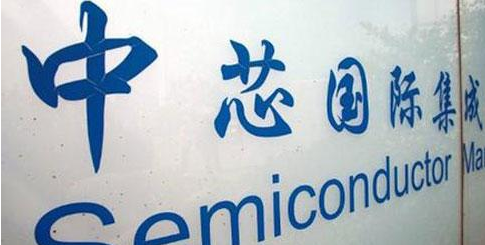Huawei's HiSilicon division is currently working on developing SSD controller chips and utilizing SMIC's 0.18-micron process to manufacture power management chips. According to recent reports, SMIC's 8-inch production capacity has been heavily occupied by Huawei HiSilicon, Qualcomm, and FPC, with nearly 70% of the capacity being allocated to these companies. This shift highlights the growing demand for advanced semiconductor solutions, especially from leading tech firms.
Media outlets have also reported that SMIC’s overall production capacity is under significant pressure. Specifically, its 8-inch fabrication facilities have seen a major portion of their capacity taken up by Huawei HiSilicon, Qualcomm, and FPC—key players in the chip industry. The aggressive shipment volume from HiSilicon this year reflects not only the company's strong performance but also the surge in Huawei's smartphone sales, which have been on an upward trajectory.
As the largest mobile phone brand in China, Huawei stands out from its competitors due to its focus on self-developed chips through HiSilicon. This strategy not only supports the company's growth but also strengthens its core competitiveness, ensuring long-term stability and innovation in the market.

Currently, HiSilicon primarily uses SMIC's 0.18-micron process for producing power management chips. These components are essential for Huawei's telecom equipment and smartphones, and their high demand has significantly increased SMIC's workload. In the first half of this year, Huawei's revenue jumped by 40% compared to the same period last year, with both telecom equipment and mobile phone segments contributing substantially to its income.
While Huawei's main smartphone chips are still manufactured by TSMC, the company continues to invest heavily in developing peripheral chips, showcasing its commitment to self-reliance in key areas. Beyond public knowledge, Huawei also designs network communication processors used in telecom infrastructure. In 2014, HiSilicon partnered with TSMC to develop the 16nm process, and it was one of only two customers using TSMC's 16nm technology at the time.
Despite the initial challenges, such as delays in the release of the Kirin 950 chip, Huawei continued to collaborate with TSMC to improve the 16nm FF+ process. However, TSMC prioritized Apple's A9 processor, leaving Huawei waiting until November for its own chip. Learning from this experience, Huawei HiSilicon has since turned to SMIC, aiming to develop the 14nm FinFET process. It is expected that SMIC will start mass-producing this technology by 2020, although some reports suggest it may be accelerated to 2018.
In addition to its well-known chips, HiSilicon is reportedly working on a high-speed SSD controller chip, which is widely applicable across various industries. This development could greatly benefit Huawei's smartphone and server businesses. Entering the SSD controller market aligns with national efforts to strengthen domestic semiconductor capabilities. Through its expansion into multiple chip sectors, HiSilicon has demonstrated strong R&D capabilities, further supporting Huawei's broader technological ambitions.
Transmission Line Steel Tubular Pole
We
have got 220kV Transmission Line poles Quality Certificate from Power
Industry Steel Tower Qualified Inspection & Test Center from 2001
year. Our steel poles are made from quality sheet through bending,
forming, automatic welding and hot galvanization. We can reach one-run
machining length of 14m and can bend sheet of thickness up to 45mm. We
adopt advanced welding procedures, automatically weld main joints and
reach rank-II welding quality.
We have supplied 2400ton 132kV and 220kV transmission line steel pole to
WAPDA. Pakistan on 2008 and have supplied 1200ton 138kV transmission
line steel pole to Davao light, Philippines on 2009.
Transmission Line Steel Tubular Pole, Tubular Steel Pole, Steel Tubular Pole, Utility Pole
JIANGSU XINJINLEI STEEL INDUSTRY CO.,LTD , https://www.steel-pole.com